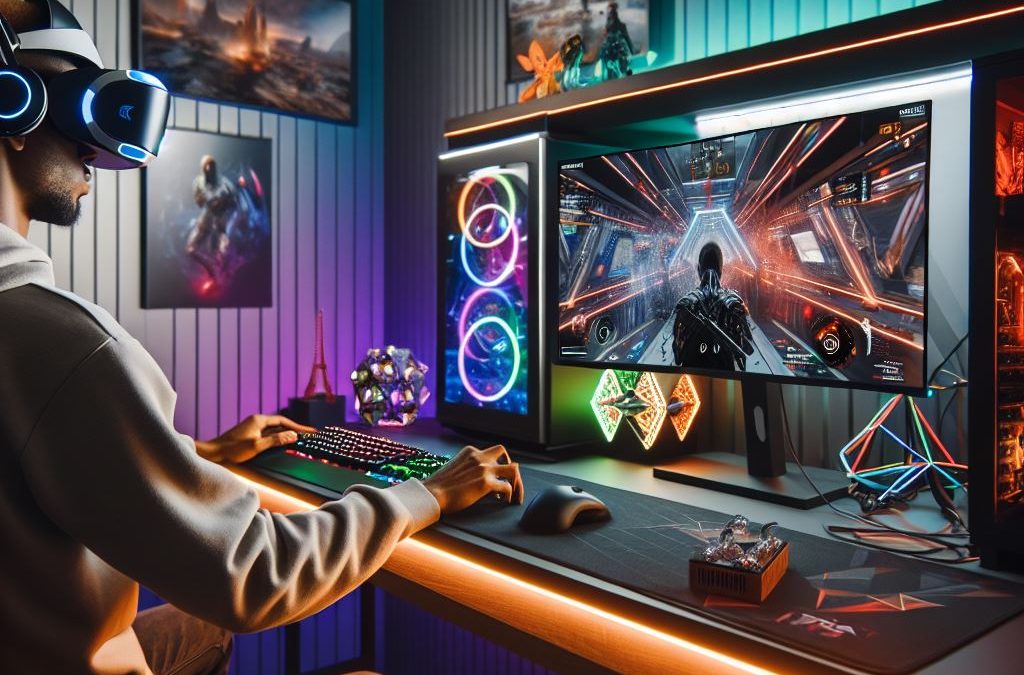Virtual Reality (VR) is completely changing how we play PC games, creating experiences we could only dream about before. Let’s explore how VR is reshaping PC gaming, from its early days to where it stands now, the hurdles it faces, and where it might take us next.
Evolution of VR in Gaming
VR isn’t actually new – the idea has been around since the 1960s, but the real progress happened in recent decades. Remember when Sega tried making a VR headset back in the 90s? It didn’t work out because the tech wasn’t ready and it cost too much. The game-changer came around the mid-2010s with headsets like Oculus Rift, HTC Vive, and PlayStation VR. These devices finally made VR accessible to everyday gamers and kicked off a boom in VR game development.
Immersive Gaming Experiences
What makes VR so special for PC gaming is how it pulls you right into the game world. Instead of just watching a screen, you’re actually inside the action. This happens through:
- Enhanced Visuals and Audio: VR headsets show you high-resolution 3D visuals and surround sound that make game worlds feel real.
- Motion Tracking: The way VR tracks your movements lets you interact naturally with the game world, making you feel truly present.
Current Applications
VR is enhancing PC gaming in several exciting ways:
- First-Person Shooters (FPS): Games like Half-Life: Alyx have raised the bar for VR shooters, making combat feel incredibly real.
- Simulation Games: VR is perfect for simulations – imagine feeling like you’re actually flying a plane in Flight Simulator or racing in Project Cars.
- Adventure and Exploration: VR takes exploration to another level – just look at how No Man’s Sky lets you wander through alien worlds like you’re really there[2].
Challenges
VR gaming isn’t without its problems:
- Hardware Requirements: You need a pretty powerful PC and a VR headset, which isn’t cheap for most gamers.
- Motion Sickness: Some people feel queasy when playing VR games – it’s a real issue that can ruin the experience[3].
- Content Development: Making good VR games takes a lot of resources and special skills that many developers are still learning[3].
Future Potential
The future looks bright for VR gaming:
- Improved Hardware: VR devices are getting better and cheaper, which means more people will be able to try them.
- AI Integration: Adding AI to VR will create smarter, more responsive game worlds that react to what you do.
- Social VR: Soon we’ll be hanging out with friends in virtual spaces, working together and sharing experiences in ways that feel surprisingly real.
VR is taking PC gaming to places we’ve never been before, with experiences that feel incredibly real. While there are still obstacles to overcome, the tech keeps getting better, and more amazing content is being created. As VR becomes cheaper and works with other technologies like AI, the possibilities for PC gaming seem endless.
If you have an old VR Headset then why not sell your VR today!
